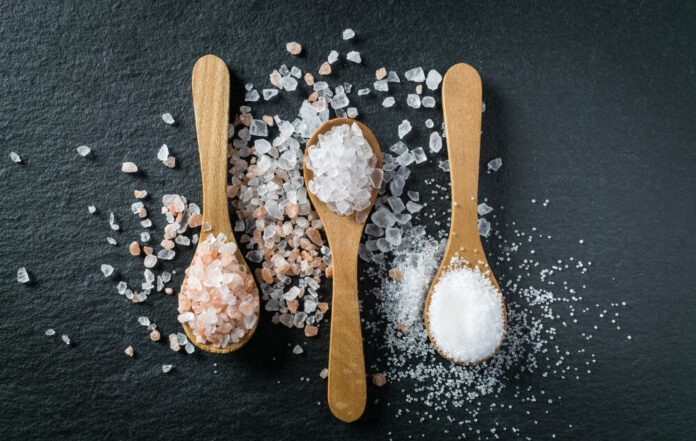
Salt, or sodium, is an essential mineral that is needed for maintaining proper bodily functions such as fluid balance, nerve transmission, and muscle function.
But you don’t need very much of it.
Data from the National Health and Nutrition Examination Survey shows that around 90% of Americans consume more than the recommended limit of 2,300mg of dietary sodium (about one teaspoon of table salt) per day.
And according to the American Heart Association, the ideal limit for sodium intake should be set even lower to no more than 1,500mg per day.
Consuming too much salt can cause all sorts of health problems, including:
High Blood Pressure
One of the most common signs of consuming too much salt is high blood pressure. Excess salt intake causes your body to retain water in order to dilute the sodium in your bloodstream.
This, in turn, increases your blood pressure, which puts a dangerous strain on your heart and blood vessels.
Over time, unmanaged high blood pressure can lead to life-threatening health problems such as heart disease, stroke, and kidney disease.
Swollen Hands, Ankles, or Feet
If you notice that your hands, ankles, or feet are swollen, this could be a sign that you’re consuming too much salt. This is due to the extra fluids that your body is retaining in response to your excess salt intake.
Weight Gain
The extra water retained in your body can also lead to bloating and weight gain. Additionally, salty foods often lead to cravings, overeating, and increased calorie intake, which can contribute to long-term weight gain.
Dry Mouth and Thirst
Consuming too much salt can dehydrate your body and make you feel like you need to drink more water than usual. This is because your body needs water to help balance the extra salt in your bloodstream.
Frequent Urination
When you consume too much salt, your body tries to get rid of the excess sodium by producing more urine. As a result, you may find yourself urinating more frequently than usual. This can be inconvenient and uncomfortable, especially if you have to get up multiple times during the night to use the bathroom.
Headaches
Consuming too much salt can also lead to headaches. High levels of sodium in your bloodstream can cause your blood vessels to constrict, which can potentially contribute to headaches and migraines. If you suffer from frequent headaches, it may be worth reducing your salt intake to see if it makes a difference.
Fatigue and Weakness
Excessive salt intake can also make you feel tired and weak. This is because your body is working harder to remove the excess sodium from your bloodstream. Additionally, high blood pressure can put a strain on your heart, which can cause you to feel fatigued and weak.
Nausea and Ulcers
Salt can irritate your stomach lining and cause inflammation, which can lead to nausea, ulcers, and other stomach pains and discomfort. This is especially true if you consume large amounts of salt in a short period of time, such as through salty snacks or fast food.
Muscle Cramps
Your muscles require a delicate balance of fluids and electrolytes (sodium is an electrolyte), to function properly. Consuming too much salt can upset this balance and cause muscle cramps or spasms, particularly in the legs.
Kidney Problems
Consuming too much salt can also put a strain on your kidneys. Your kidneys are responsible for filtering out waste and excess fluids from your body, but when you consume too much salt, your kidneys have to work harder to remove the excess sodium from your bloodstream. Over time, this can lead to kidney damage, stones, or other forms of kidney disease.
If you’re experiencing any of these symptoms, it is probably worth reducing your salt intake to a healthier level.
Pay attention to the sodium content of the foods you eat, and avoid adding salt to your meals. Choosing fresh, whole foods over processed or packaged foods can also help you reduce your salt intake. Consult with your healthcare provider if you have any concerns or questions about your sodium intake or if you have any underlying health conditions.






















